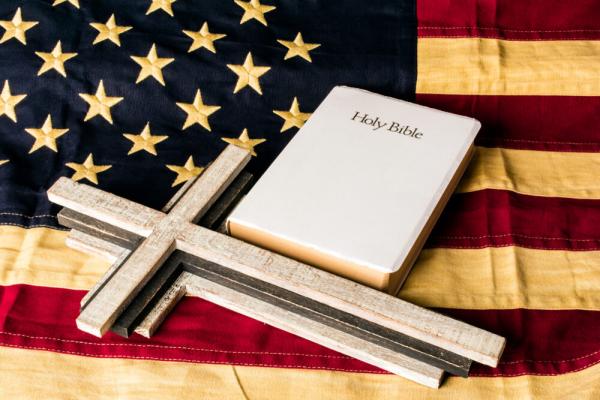Jul 18, 2019
How can someone who claims to stand on family values possibly support a policy of family separation that, in many cases, leaves no possibility for future reunification? How can someone who claims to follow a man who taught us to love our enemies possibly support an administration that refuses to provide children with basic necessities like soap, toothbrushes, or even a decent night’s sleep? It doesn’t add up, and it’s time Christians stood up and took notice because the religiously unaffiliated already have.
Read the Full Article

Already a subscriber? Login
